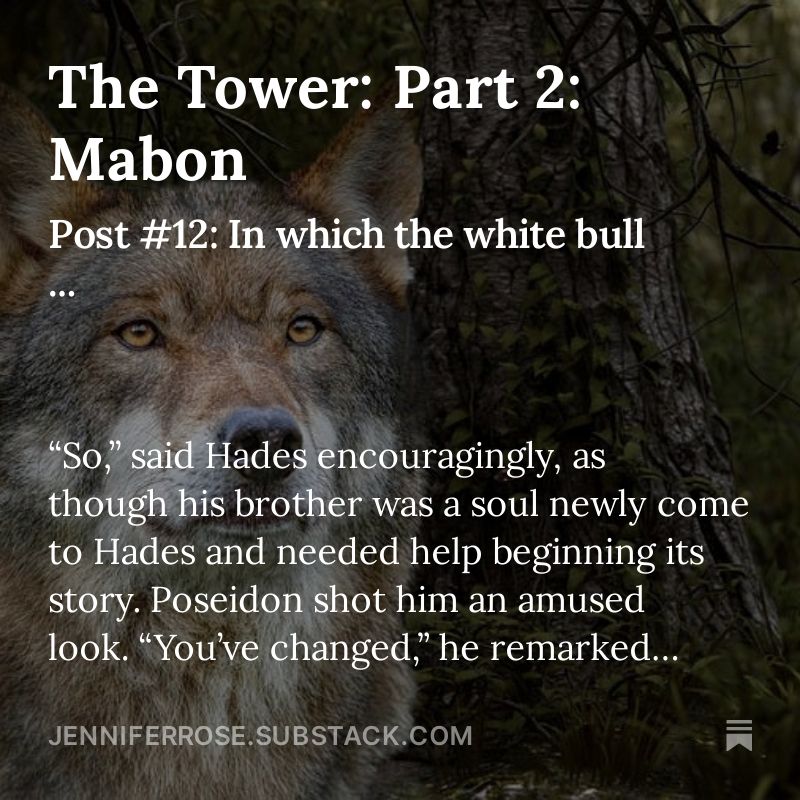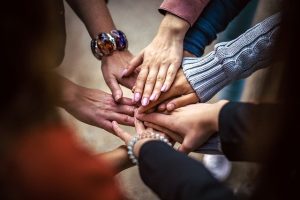by Jenny Rose | Mar 30, 2024 | A Flourishing Woman, Self-Love
When I wrote about internal locked rooms earlier in the month, I had no idea how much there would be to unpack. In subsequent discussions about locked rooms and unconditional love (for a connect-the-dots map go here) a friend tells me she believes trusting herself is the biggest barrier for her in unconditionally loving herself. Me being me, I asked her how we define trust. In asking her I asked myself.

Photo by Jonathan Simcoe on Unsplash
Here we go again.
Trust is defined by Online Oxford Dictionary as “firm belief in the reliability, truth, ability, or strength of someone or something.”
Trust is a tricky subject for me and I’ve so far avoided taking it head on, but this feels like the right time. Part of my hesitation to talk about it is my own identity as a person who doesn’t trust easily.
I feel that piece of identity as a shameful aspect of my character. As I write this, I have a vivid childhood memory of being in the back of a dim car in a blinding snowstorm feeling scared. An adult in the car was also fearful, as were the family dogs. The driver asked me, “What’s the matter, don’t you trust me?”
The answer clamored inside the car, “NO!” For a moment it seemed to me we’d all shouted it, though nobody said a word and I huddled, frozen with fear and not daring to speak, in my corner.
It’s bad not to trust; disloyal, unloving, unnatural. But I learned very young trusting those around me was dangerous. All my life I’ve been torn between my shame about not trusting and a determination to survive and learn to self-defend … which sometimes (often?) means not trusting.
I don’t see trust as a black-and-white belief. I might trust someone completely with money and business affairs, but not at all as a confidant. I might trust someone as a parent but not as a dog walker. I might trust someone’s essential goodness but not their reliability in following through on plans.
This question of trusting ourselves, though, is slightly different. What does it mean, exactly, to not trust ourselves? What do I mean when I say it to myself?
Trust is defined as a belief, and beliefs can and do change. Belief is a choice. My belief that I’m untrustworthy is not something I was born with, but something I internalized from my family. I’m untrustworthy because I’m dramatic, I struggle with math story problems, I have needs and feelings, I’m intuitive, I’m sensitive, I have boundaries, I challenge authority and rules, and I tell the truth, among many other reasons.
Internalized voices are a bitch, because we don’t realize or remember they came from someone outside us.
And people outside us lie. People outside us can never fully see what’s inside us. People have agendas, their own wounds and trauma, and navigate around their own internalized bullshit.

Photo by Cristian Newman on Unsplash
People outside us are not necessarily reliable sources about our worth and value as a human being.
If trust is a “firm belief in the reliability, truth, ability, or strength of someone or something,” we have specifics we can explore.
Reliability: I know myself to be reliable. I have many flaws, but my integrity is strong and I keep my word to myself.
Truth: A thorny aspect of trust. I wrote two paragraphs here about the ways in which others perceive my truthfulness. On edit, I realized none of that has to do with my truthfulness with myself, which will always be invisible to the outside world. Do I trust my truthfulness with myself? Yes. Absolutely.
Ability: This is my weakest area of self-trust. In some ways. At some times. I wrestle every day with imposter syndrome. On the other hand, I absolutely trust my ability to write, to teach, to swim, to dance, and to do many other things. Oddly, though I trust my ability in most cases, I don’t want others to trust my ability because I have a huge fear of disappointing people. This, too, is an old wound, first opened when I received constant messaging about how disappointing and inadequate I was as a child. Because of that, I don’t want people to rely on me for fear I’ll let them down, not from my perspective, but from theirs.
I told you trust was tricky for me.
Strength: Which brings me to strength. This, for me, is a no-brainer. I have absolute belief in my own strength. God knows I wouldn’t be sitting here at the keyboard typing if I hadn’t been strong all my life.
Given this mostly positive review of the components of this definition of trust, what’s the problem? Why have I so consistently mistrusted myself during my lifetime?
I can easily come up with two reasons. There may be more lurking in the background, but these two are in front: One is trust in my physical body, and the other is perfectionism.
Perfectionism is one of the first things I wrote about on this blog. It’s another piece from my childhood I’ve struggled with it all my life, and I’m certainly not the only one. I’m conscious of it now, which is helpful, but it affects every day of my life and if I’m not mindful it rules me. Publishing this blog was one of my first real efforts at resistance. It took more than a year of weekly publishing to stop feeling panic as I pushed the “publish” button after a reasonable amount of writing and editing.
Even as perfectionism drives me, I’m aware enough to know I can’t define it beyond pleasing people. Which is impossible, and I know that. Yet the internal pressure to be perfect seems to be inescapable.
I’ve also written extensively about expectations. As a child, I was expected to be perfect according to conflicting expectations from three adults on whom I was dependent. Needless to say I failed to please any of them, which meant I lived in a constant state of shame and fear of abandonment. A perfect setup for internalized self-loathing. The road from self-loathing to considering unconditional self-love has been an amazing journey.
I was aware, as I explored ability, reliability, truth, and strength above, of a little voice in my head saying, “Yes, but—,” a precursor to the time I was late, or forgot an appointment, or the occasions I did deliberately lie, or the times I felt weak, or when my ability did not live up to my own unconscious standards of perfectionism.
As I became aware of this, I realized I will never trust myself if I aspire to be perfect in these four categories. I have never been perfect, I am not perfect, I never will be perfect, and I’m not much interested at this point in my life in attaining perfection in any way.
So fuck off, perfectionism. I’m not your bitch anymore. AND you will not stop me from loving myself, unconditionally or otherwise. Unconditional love is not built on some ridiculous set of expectations.

Photo by Emma Backer on Unsplash
Which brings me to an interesting insight on my relationship with my body. Let’s not do the body-as-a-political-signal thing, OK? I’m sick of it. We all live in a body. We have baggage about how our bodies look and function. We’re pressured, every day, to try to buy a “better” body, especially children. In today’s world, many of us feel we “should” be different, no matter what we look like. Currently, we’re obsessed with appearance and virtue signaling rather than health and function.
I don’t hate my body. However, due to autoimmune issues and years of chronic pain, I haven’t trusted it. Until the last ten years or so, since I’ve gone carnivore, my physical state was extremely limiting; I was unable to engage fully in activities I loved, get regular exercise, or even reliably manage the activities of daily living without severe pain.
Now I have my inflammation under control, my chronic pain is gone, and I’m able to joyfully live the kind of active lifestyle I’ve always wanted: gardening, walking, swimming, water aerobics, free weights, stretching, a little yoga, a little Pilates, a little time in the gym. I’m healthier and more active than I’ve ever been, but I am aging, and as I age, my body is changing. (Big surprise, I know!) I noticed, in my post about unconditional self-love, some of the things I wrote about unconditionally loving were physical things. In this culture, nobody tells us to love our varicose veins, or our age-spotted hands, or our lined neck. Instead, we’re encouraged to buy something and “fix” all those problems, or at least hide them.
That’s not unconditional love. (I also deny it’s “body positivity,” but I don’t want to dive into that rabbit hole!)
I know if I push myself too hard my body will hurt. I know if I allow my anxiety to spin out of control I won’t sleep. I know if I eat a whole pizza I will a) have inflammation and pain from the carbs and b) have severe constipation (cheese). I know if I garden for too many hours at a time I’ll be too stiff the next morning to get dressed without sitting down. I know if I spend too many hours in the pool I’ll develop eczema on my elbows and hips.

Photo by Cristian Newman on Unsplash
I ask myself, does all this mean I don’t trust my body? Because it actually sounds like I do trust it to react to my choices in various predictable ways. Is what I’m really saying I don’t trust my body to be a 20-year-old perfect body?
Well …. Yeah. I guess that is what I’m saying. Pretty silly.
My friend doesn’t feel she can unconditionally love herself without trusting herself. She’ll navigate her own path through all this. My own conclusion is I can trust myself. Perhaps I should consciously start doing so. (What an idea!) For me, lack of self-trust is not an obstacle to unconditional love, but it certainly makes a nice contribution to it.
Questions:
- Do you see trust as essential to unconditional love?
- Do you agree with this definition of trust? If not, how would you define it? Can you find a better definition?
- What aspect of trust in this definition do you struggle with the most?
Leave a comment below!
To read my fiction, serially published free every week, go here: 
by Jenny Rose | Aug 27, 2022 | Connection & Community, Emotional Intelligence
A little over three years ago I wrote a post titled “Questions Before Engagement.”
Since then, the world has changed, and so have I.
I’m not on social media, but my biggest writing cheerleader is, and he tells me people are talking about how to recognize red flags. He suggested I post again about problematic behavior patterns.
A red flag is a warning sign indicating we need to pay attention. It doesn’t necessarily mean all is lost, or we’ve made a terrible mistake, or it’s time to run. It might be whoever we’re dealing with is simply having a bad day. Nobody’s perfect.

Image by Gerd Altmann from Pixabay
A persistent pattern of red flags is significant. Ignoring problematic behavior sets us up to get hurt.
The problem with managing red flags is we may be flying several ourselves, and until we figure out our own behavior we’re going to struggle to deal effectively with others.
We all have an excellent built-in system alerting us to possible danger. We call it intuition, going with our gut, or having a hunch or a feeling. We may not know why we feel uneasy, but we subconsciously pick up on threatening or “off” behavior from others. The difficulty is we’re frequently actively taught to disregard our gut feelings, especially as women. We’re being dramatic, or hysterical, or a bitch. We’re drawing attention to ourselves, or making a scene. What we saw, heard or felt wasn’t real. It didn’t happen, or if it did happen, we brought it on ourselves.
We live in a culture that’s increasingly invalidating. Having a bad feeling about someone is framed as being hateful, engaging in profiling, or being exclusive rather than inclusive. Social pressure makes it hard to speak up when we feel uncomfortable. Many of the most influential among us believe their money and power place them above the law, and this appears to be true in some cases. In the absence of justice, we become apathetic. What’s the point of responding to our intuition and trying to keep our connections clean and healthy when we can’t get any support in doing so?
If we grow up being told we can’t trust our own feelings and perceptions, we’re dangerously handicapped; we don’t respond to our intuition because we don’t trust it. We talk ourselves out of self-defense. We recognize red flags on some level, but we don’t trust ourselves enough to respond appropriately. Indeed, some of us have been severely punished for responding appropriately, so we’ve learned to normalize and accept inappropriate behavior.
So before we concern ourselves with others’ behavior, we need to do some self-assessment:
- Do we trust ourselves?
- Do we respond to our intuition?
- Do we choose to defend ourselves?
- Do we have healthy personal boundaries?
- Do we keep our word to ourselves?
- Do we know how to say both yes and no?
- Do we know what our needs are?
- Are we willing to look at our situation and relationships clearly and honestly, no matter how unwelcome the truth might be?

Photo by freestocks.org on Unsplash
Once we’ve become familiar with our own motivation and behavior patterns, we can turn our attention outward and focus on the behavior of those we interact with.
Red flags frequently seem too bad to be true. In intimate relationships with partners and family, the anguish of acknowledging toxic or dangerous behavior and setting limits around it cannot be overstated. Those we are closest to trigger our deepest and most volatile passions. This is why it’s so important to be honest with ourselves.
The widest lens through which to examine any given relationship is that of power-over or power-with. I say ‘lens’ because we must look and see, not listen for what we want to hear. Talk is cheap. People lie. Observation over time tells us more than words ever could. In the case of a stranger offering unwanted help with groceries, we don’t have an opportunity to observe over time, but we can say a clear “no” and immediately notice if our no is respected or ignored. We may have no more than a minute or two to decide to take evasive or defensive action.
If we are not in an emergency situation, or dealing with a family member or person we’ve known for a long time, it might be easier to discern if they’re generally working for power-with or power-over. However, many folks are quite adept at using the right words and hiding their true agenda. Their actions over time will invariably clarify the truth.
Power-over versus power-with is a simple way to examine behavior. No labels and jargon involved. No politics. No concern with age, race, ethnicity, biological sex, or gender expression. Each position of power is identifiable by a cluster of behaviors along a continuum. We decide how far we are willing to slide in one direction or another.
Power-Over
- Silencing, deplatforming, threatening, personal attacks, forced teaming, bullying, controlling
- Win and be right at all costs
- Gaslighting, projection, DARVO tactics (Deny, Attack, Reverse Victim and Offender)
- Fostering confusion, distrust, disinformation, and violence
- Dishonesty
- Poor communication and refusing to answer questions
- Emotional unavailability
- High-conflict behavior
- Blaming and shaming of others
- Refusal to respect boundaries
- Inconsistent
- Refusal to discuss, debate, learn new information, take no for an answer
- Lack of reciprocity
- Lack of interest in the needs and experiences of others
Power-With
- Encouraging questions, feedback, open discussion, new information, ongoing learning, critical thinking
- Prioritizing connection, collaboration, and cooperation over winning and being right; tolerance
- Clear, consistent, honest communication
- Fostering clarity, trust, information (facts), healthy boundaries, reciprocity, authenticity, and peaceful problem solving
- Emotionally available and intelligent
- Taking responsibility for choices and consequences
- Words and actions are consistent over time
- Respect and empathy for others
We don’t need to be in the dark about red flags. Here are some highly recommended resources:
- The Gift of Fear by Gavin de Becker
- Bill Eddy’s website and books about high-conflict personalities
- Controlling People by Patricia Evans

Image by Bob Dmyt from Pixabay
by Jenny Rose | Jul 30, 2022 | Connection & Community, Emotional Intelligence
“Unity does not mean sameness. It means oneness of purpose.”
–Priscilla Shirer

Photo by Evan Kirby on Unsplash
I’ve been thinking about this quote for a couple of weeks now. It’s especially relevant for these times, when social and political tensions are so high around division and unity.
We’ve understood the strength inherent in unity for a long time, but what exactly is unity? Oxford Online Dictionary defines it as “the state of being united or joined as a whole.” Note ‘sameness’ is not part of the definition.
Division and disconnection, however, are excellent ways to disempower individuals or groups of people. Authoritarians know this and take advantage of successful strategies and tools to achieve social chaos, violence, and play on our innate paranoia and tendency to distrust and blame others. Controlling media and communication as well as the flow of information (facts), stamping out free speech and critical thinking, invalidating science and data, weakening education, and allowing ideologues, fanatics, and seriously disordered people to gain and maintain positions of power are direct frontal attacks on unity.
We can see how highly effective such strategies are. Slowly, we’ve drifted into the belief that unity is sameness. Black and white can’t work together. Men and women are enemies. Republicans and Democrats, left and right, vaxers and anti-vaxers, must all maintain oppositional positions.
But unity does not mean sameness.
Neither can unity be forced. Some time ago I wrote about Gaven de Becker’s book, The Gift of Fear. As far as I’m concerned, this should be required reading for every woman in the world. One of the concepts de Becker has coined is that of “forced teaming.”
Forced teaming is an intentional, directed manipulation projecting shared purpose or experience where none exists. It’s an effort to force premature trust and false intimacy. The example de Becker uses involves a strange man approaching a woman juggling bags of groceries and offering to help. Ignoring the response of “No, thank you,” the man speaks in an insistent, friendly, pleasant way of “we.” “We neighbors need to help one another out.” The woman, polite and not wanting to be unpleasant to this nice man, acquiesces. She unlocks her door and lets the man in with a couple of bags of her groceries.

Photo by Peter Forster on Unsplash
Forced teaming is extremely hard to deal with because it’s subtle, and rejecting it feels rude.
Rude.
I tripped over that word and fell flat on my face. My inability and complete unwillingness to ever be rude has handcuffed me my whole life. It’s opened me up to abuse and trauma, silenced me, and fueled my self-hatred and self-harm.
All because I didn’t want to be rude.
I never consider whether someone is being rude to me. All I have room for is the desire to avoid behaving in such a way at all costs.
Ladies, when a strange man approaches us in a vulnerable situation, it’s rude. And dangerous. He may mean well. He may not. We can’t tell and we’re fools if we trust a strange man when we’re in an unsafe situation. I don’t care how well he’s disguised as Prince Charming or how solicitous and warm and friendly he is. Forced teaming does not occur in a situation of coincidence. It’s deliberate and directed at manipulating us. Are we unable to push past the taboo of rudeness and say, “I didn’t ask for your help and I don’t want it”? Would we rather put ourselves at real risk for violence? Is the social mandate against rudeness, especially for women, that strong?
It’s not, when I lay it out like this, on the screen, in words. Of course I can see how foolish it is to put manners ahead of my own health and safety. But in the moment, I’d be a woman who didn’t notice my “No, thank you,” was ignored. I wouldn’t want to make a fuss or a scene. I wouldn’t want to hurt the nice guy’s feelings. I wouldn’t want to be a bitch.
I wouldn’t want to be rude.
Oxford Online Dictionary defines rude as “offensively impolite or ill-mannered; startlingly abrupt.”
Notice the subjectivity of that definition. Many people currently appear to believe disagreement is rude. Biological fact is rude. The truth is rude. Boundaries are rude. Questions are rude. Discussion and debate are rude. Speaking up in self-defense is rude. Saying no is rude.

Photo by Gemma Evans on Unsplash
Rudeness is tricky. We all have a private list of rude behaviors that make us cringe. It’s important to note the list varies from person to person. I’ve known people who were brought up to consider sneezing out loud rude. They go through all kinds of contortions to avoid it, emitting a variety of hilarious sounds. It always makes me smile when I run into this. I wasn’t raised with a prohibition against sneezing, so to my way of thinking it’s not rude if the sneeze is covered or contained and a murmured “excuse me” follows it.
Rudeness is so often in the eye of the beholder.
Of course, those who try to control us with forced teaming and other manipulative techniques will be loud about how rude we are when we refuse to accept those tactics. We’re likely to be publicly shamed and called hateful names.
But we’re less likely to get dragged into a car, raped, or murdered.
It boils down to the old problem of saying no. If we decide saying no is rude, the only polite way to live is to have no power and no boundaries. Who would benefit from a such a compliant and disempowered population?
I like the idea of oneness of purpose. It’s a container for strength, cooperation, and integrity. However, this, too, is a minefield because, to put it rudely, people lie about their purpose and agenda. Forced teaming comes into play. A small group with intentions to grab power approaches a larger, well-established and organized group working for empowerment and support of a marginalized population and says we’re with you! We want the same thing! Look how alike we are! You have to include us!
Individuals and groups who have been marginalized are particularly loath to repel this kind of invasion because they believe in kindness, tolerance, and an equal playing field, and they know from their own experience how painful and unjust systemic discrimination and bigotry are. They are successfully infiltrated, manipulated, and weakened from the inside by the smaller group, who never had any intention of working and playing well with others and only wanted to co-opt the established group’s presence, position, and power for their own ends.
To achieve oneness of purpose, we would have to agree on priorities, have equal access to information (facts) and resources, create strategies and systems to improve our situation, tell the truth, and consent to work with people different from us in a variety of ways.
It sounds lovely. It also sounds like fantasy in our current social context.
Never in my lifetime has unity felt so out of reach.
Never in my lifetime has unity appeared so necessary.

Photo by Helena Lopes on Unsplash
by Jenny Rose | Mar 15, 2018 | Power

Photo by Vladislav M on Unsplash
I’ve always been fascinated by the psychology of survival. I observe that we as a culture are obsessed with heroes and rebels and the endless struggle between archetypal good and evil. Survival kits are becoming a thing in marketing. Preppers write blogs and have TV shows.
Interestingly, our social and cultural world actively inhibits our ability to survive in all kinds of ways. Public school education might be said to be a long indoctrination in anti-survival. We spend hours with our mouths open in front of screens in dark rooms, enchanted by movies and games. Congregations of fans share reverence for comic book characters and the happenings in galaxies far, far away. We debate, criticize and celebrate the way these carefully constructed heroes dress, speak, look, act and collaborate with special effects. We have high expectations of our heroes. We imbue them with nostalgia. We expect our heroes to be just, compassionate, intelligent, interesting, attractive, moral, humorous, strong and poised.
Meanwhile, dangerous events take place in our families; in our workplaces, subways, airports and schools; in our world.
We wait for someone to neutralize the danger, clean it all up, drain the swamp, and make it all fair. We wait for rescue. We turn a blind eye. We do whatever it takes to distract ourselves from uncertainty, fear and our own powerlessness. We watch the beast lumber toward us and deny its presence, deny its existence until we find ourselves in its belly, and then we still refuse to believe.
I’ve been reading author Laurence Gonzales. He’s written several books (see my Bookshelves page). We have Deep Survival and Everyday Survival in our personal collection. Gonzales has made the subject of survival his life’s work. He’s traveled extensively, synthesized studies and research and spent hundreds of hours interviewing people involved with all kinds of catastrophes, both natural and man-made. His books are thoughtful, well-written, extraordinarily well researched and utterly absorbing.
Gonzales uncovers the astounding complexity of human psychology and physiology as he explores why we survive, and why we don’t. He’s discovered some profound and surprising truths.
The best trained, most experienced, best equipped people frequently do not survive things like avalanches, climbing accidents, accidents at sea and being lost in the wilderness. Sometimes the youngest, weakest female has been the sole survivor in scenarios like this. It turns out some of the most important keys to survival appear to be intrinsic to our personalities and functioning, not extrinsic.

Photo by Tommy Lisbin on Unsplash
Gonzales does not suggest, and nor do I, that training, equipment and experience don’t count, just that they’re not a guarantee. In some cases, our experience and training work against us in a survival situation, because we assume a predictable and familiar outcome in whatever our activity is. We’ve made the climb, hike, journey before, and we did just fine. We’ve mastered the terrain and the necessary skills.
Mt. Saint Helen’s had never erupted before. Therefore, all those people who stood on its flanks and watched in wonder failed to grasp that something new and unprecedented was happening. Their inability to respond appropriately to a rapidly changing context killed them. The same thing happens during tsunamis. People are awed and transfixed. They have no direct experience of a tsunami bearing down on them as the water rolls back to expose the sea bed. They don’t react in time.
There’s a model called the OODA loop. The acronym stands for Observe, Orient, Decide, Act. Our ability to move quickly through the OODA loop is directly linked to our ability to survive.
Observation, the ability to be here now, the ability to recognize what is, is something everybody can practice all the time. No special equipment or training needed. What is needed, though, is the emotional and cognitive willingness (consent, if you will) to set aside our distractions, addictions, rigid preconceptions and expectations (often invisible to us, making them even more deadly) and dependence on stimulation. It also requires a mind set of self-responsibility. It turns out movie theatres, schools, concert venues and many other places are not safe. We can debate, deny and argue; protest and rally; scapegoat and write new laws. We are and we will. In the meantime, the reality is we are increasingly unsafe in many public places, and no one has the power to wave a wand and take care of that for us.
It’s up to us to take care of ourselves. That starts with observation.
In my post on self-defense I mentioned situational awareness. Our instructor emphasized that skill as being more important than any other move or weapon. If we see or sense something dangerous in our vicinity, it’s up to us to orient and move to a safer location.
That brings up another very important survival skill: instinct. At this point science cannot measure instinct, but Gonzales’s instinct about getting on a certain plane saved his life once, and many of us have similar stories. As far as I’m concerned, instinct is part of observation. What do we observe? How do we feel about what we observe?

Photo by Wynand van Poortvliet on Unsplash
Our instinct is blunted in all kinds of ways. It’s mixed up with political correctness, including racial profiling. Few of us want to demonstrate discomfort around others for any reason these days. I invariably feel guilty when I react to someone negatively, even if my reaction is entirely private. It’s bad and wrong to judge, to cross the street to avoid somebody. It’s ugly and hateful.
Additionally, I’m a woman and I’m highly sensitive, which makes me particularly attuned to body language, voice inflection and all the clanging (to me) subtext of communication beneath whatever words are spoken. I can’t prove my intuition. I can’t demonstrate it logically. I have no wish to diminish or disempower others. I’m not a bigot. All people have energy and sometimes it’s foul. I reserve the right to move away from it. If that makes me hateful, woo, dramatic or hysterical, so be it. I’m accomplished in the art of noncompliance, but many are not.
If we only see what we expect to see, we aren’t observing. If we fail to see what we’re looking at, we’re not observing. If we can’t take in the whole picture, we’re not observing. If we look for something instead of at everything, we’re not observing. We’ve already broken the OODA loop.
Observing and orienting mean coming to terms with what we see. The plane is down. Our ankle is broken. We’re lost in a whiteout blizzard off the trail. We can’t decide how we’re going to survive if we’re unable to accept and orient to what is.
As a young woman, I did fire and rescue work. I was an IV-certified EMT, and I learned in those days that panic, fear and despair are killers. They’re also highly contagious. People who survive lock those feelings away to deal with after they’re safe again. Gonzales found, amazingly, some people will sit down and die, though they have a tent, food and water in the pack on their back. They just give up.
I also learned that the hysterical victims are not the ones most likely to die in a multiple trauma event. They demand the most attention, certainly, but it’s the quiet ones who are more likely to have life-threatening injury and slip away into death. The screamers and the drunks, the ones blaming, excusing and justifying, are frequently the cause of the accident and retard rather than assist in the survival of themselves and those around them.
On the other hand, strength, determination and calm are also contagious. If just one or two people in a group keep their heads and take the lead, chances for survival begin to increase for everyone.
When I was trained as a lifeguard and swimming teacher, I learned something that’s always stayed with me.
You can’t save some people. It’s possible to find yourself in a situation where, in spite of your training and best efforts, the victim is so combative or uncooperative, or the circumstances so impossible that the choice is between one death or two. This fact touches on my greatest impediment to survival, which, ironically, is also one of my greatest strengths.
My compassion and empathy mean I frequently put the needs of others before my own. I do it willingly, gladly, generously and out of love. It’s one of my favorite things about myself, and it’s also one of my most dangerous behaviors.
Consider a scene many of us are metaphorically familiar with. Someone nearby is drowning. They’re screaming and thrashing, weeping, begging to be saved. We throw them a rope so we can pull them out. They push it away and go on drowning because the rope is the wrong color. Okay, we say, anxious to get it right and stop this terrible tragedy (not to mention the stress-inducing howling). We throw another rope, but this one is the wrong thickness. It, too, is rejected, and the victim, who is remarkably vocal for a drowning victim, continues to scream for help.

Photo by Lukas Juhas on Unsplash
On it goes, until the rescuer is exhausted, desperate, deafened and feeling more and more like a failure. Meanwhile, the “victim” goes on drowning, loudly, surrounded by various ropes and other lifesaving tools. We, as rescuer, are doing every single thing we can think of, and none of it is acceptable or adequate. In our frantic desire to effect a rescue at the cost of even our own lives, we’ve ceased to observe and orient. We’re not thinking coolly and calmly. We’re completely overwhelmed by our emotional response to someone who claims to want help.
The survivor in this picture, my friends, is not the rescuer. The so-called victim is the one who will survive. If they do grudgingly accept a rope and are successfully pulled out of the water, they immediately jump back in.
The will to survive is an intrinsic thing, and I can’t give or lend mine to someone else. People who can’t contribute to their own survival, and we all know people like that, are certainly not going to contribute to mine, and some will actively and intentionally pull me down with them, just because they can.
I don’t have to let that happen, but in order to avoid it I need to be willing to see clearly, accept what I see, cut my losses and act in my own behalf. Real life is not Hollywood, a comic book or virtual reality. It’s not my responsibility to be a savior, financially, emotionally, sexually or in any other way. The word survivor does not and cannot apply to everyone.
It’s a harsh reality that doesn’t have much to do with being politically correct or approval and popularity, and most people have trouble facing it, which will inhibit their survival if they ever find themselves in an emergency situation.
Gonzales covers this at some length in Deep Survival, and he rightfully points out that compassion and cool or even cold logic are not mutually exclusive. People in extreme situations sometimes have to make dreadful decisions in order to live, and they do. A compassionate nature that does what must be done may buy survival at the cost of life-long trauma. Ask any combat veteran. This is the side of the story the Marvel Universe doesn’t talk about. Survival can be primitive, dirty and gut wrenching. Sending blue light and thoughts and prayers are not the stuff of survival.
Clear orientation leads to options and choices. Evaluating available resources and concentrating on the basics of survival: water, food, shelter, warmth, rest and first aid are essential. Thinking coolly and logically about what must be done and breaking the task into small steps can save people against all odds.
Sometimes, death comes. Eventually, we all reach our last day. In that case, there’s no more to be said. Yet the mysterious terrain on the threshold between life and death is remarkably defining. I wonder if perhaps it’s the place where we learn the most about ourselves.

Photo by Andrew Neel on Unsplash
I’ve known people who stockpile weapons and ammo, bury gold in bunkers, build off-grid compounds and obsess about survival equipment and bug-out bags. Many wilderness schools teach basic and advanced survival techniques. Some folks put all their financial resources into prepping for catastrophe and collapse. I’m nervous about the state of the world on many levels myself, so I understand, but I can’t help thinking that investing in a story about living in a guarded, fully-equipped compound is not much better than investing in a story that water will continue to run from faucets, a wall socket will deliver electricity and grocery shelves will hold food, forever and ever, amen.
After reading Gonzales, I’m considering maybe simply living life is the best preparation for survival. Trusting my instinct; learning to manage my power and feelings; being aware of the limitations of my experience, expectations and beliefs are all investments in survival. Simply practicing observation is a powerful advantage. I don’t have money to spend on gear and goodies I might or might not be able to save, salvage or retain if things fall apart. The kind of investment that will keep me alive is learning new skills, staying flexible and adaptive, developing emotional intelligence and nurturing my creativity. No one can take those tools away from me and I can use them in any scenario.
We’re born with nothing but our physical envelope. Ultimately, perhaps the greatest survival tool of all is simply ourselves, our wits and our will.
All content on this site ©2018
Jennifer Rose
except where otherwise noted
by Jenny Rose | Jan 25, 2018 | Power
Arguing with what is.
Possibly the most fruitless endeavor in the world.
Yet many of us consistently argue with how we are, how others are, and how the world is.
Arguing with what is is like living in an unending war. Clinging to a story inconsistent with what is requires constant vigilance. Our lives begin to revolve around the fear that the truth we refuse to acknowledge will escape or be exposed.

Photo by Ian Espinosa on Unsplash
We cannot allow that to happen, so we put all our energy into convincing ourselves that what is isn’t. Then we start trying to persuade others to validate our particular reality because God speaks to us, or we’re especially victimized, marginalized, enlightened, rich or powerful. If we can’t persuade others, we try to create and enforce rules requiring them to fall into line, to agree, at least tacitly, with our point of view and belief system. We scorn critical thinking, science and evidence-based data. We discourage questioning, careful definitions and nuances. We create jargon, acronyms, blacklists and smear campaigns. We enlist the sympathy, empathy, kindness and compassion of well-meaning but naïve people. We set up zero sum games, use gaslighting, violence, abuse, projection, deflection, sweeping and inaccurate generalizations and distortions. We hurt ourselves, and we hurt others.
Arguing with what is is a full-time job.
My particular version of arguing with what is takes place mostly in my head. For example:
I don’t feel loved.
What? How can you say that? Remember that one kiss at the beginning, the most passionate kiss of your life? You know you want that again! Think of how funny he can be, how charming, how much fun! If you don’t feel loved it’s because you’re not trying hard enough. You’re ungrateful. You’re disloyal. You’re a bad partner. You don’t deserve him. You want too much. You’re needy and demanding. Of course he loves you, he’s just not comfortable saying it! You are happy and loved. Get a grip!
I don’t feel happy or loved.
I had this ding-dong conversation with myself for years. I desperately and repeatedly tried to convince myself I was both happy and loved, but I could never quite silence that deep internal voice that went right on saying, “I don’t feel loved.” It wouldn’t shut up. After years of this nonsense, I finally got so exhausted I stopped arguing with my true feelings and ended the relationship. Then, one day I came across narcsite dot com and immediately recognized the narcissist-empath dynamic.
You know what? I was right. I didn’t feel loved because I wasn’t, in fact, loved.

Photo by Travis Bozeman on Unsplash
Arguing with what is means fear and self-doubt are my constant companions.
So what’s the other side of the coin? What’s the fix for arguing with what is?
This magical phrase: However this needs to be, it’s okay with me.
Say it aloud: However this needs to be, it’s okay with me. Is it a lie? It usually is a lie for me when I first apply it to any given situation. I want things to be predictable, controlled and adhere to my expectations and standards. I expect that of myself, of others and of the world.
I haven’t had great luck with that expectation. The rebellious world is chaotic, unpredictable and unexpected. I’m not in charge of anyone but myself, and my feelings (along with the rest of me) are disobedient and refuse to be controlled.
My need for control and predictability are rooted in fear and lack of trust in myself. If, at any moment in any day, however things need to be is not okay with me, I know I’m dealing with fear or lack of self-trust, and those are both places where I have all the power. That instant refocus from avoiding, denying or refusing an inconvenient or unexpected truth or reality over which I have no power to the very center of my power clears away anxiety, confusion and fear. What happens in me, in a day, or in the world is not really the problem. The problem is in the way I manage my power and my choices. Addressing my own power and choices allows me to say, with perfect truth, that however this needs to be, it’s okay with me.
Being okay with the ways things are doesn’t mean endless love, light and turning the other cheek. It doesn’t mean I accept boundary violations, bullying, coercion, violence or any other kind of power-over games. It doesn’t mean I tip-toe through life pleasing others, following rules and keeping silent. It doesn’t mean toadying to the political correctness police. It doesn’t mean I feel no frustration or disappointment, or that the status quo should remain unchallenged and unchanged. It means clarity about where my power is.
Nobody wants a flat tire, herpes, an unwanted pregnancy, a cancer diagnosis, mental illness, the flu or to lose a loved one. We don’t want superstorms that wipe out our homes, the uncertainties and anxiety of climate change or food and water shortages. Nobody voted for lead in their drinking water, or to experience genocide. Nobody wants to be silenced, attacked, abused, marginalized, shot or scapegoated.
Yet all these things are. They’re real, along with many magical, wonderful things, and I can’t change the way things are.

Photo by Ludde Lorentz on Unsplash
I can only change the way I am. I can decide when and how to speak. I can decide how I interact with others. I can listen, learn, research, ask questions, think critically and decide where I stand on important issues. I can speak up for those without voices. I can pay attention to my own integrity and operate within it. I can disengage, refuse to pick up poisoned bait, move away from where the blow is going to land (sometimes) and learn self-defense.
I can say no.
I can learn to trust my own courage, willingness to love, intelligence, feelings and ability to adjust and adapt to whatever happens. I can choose confidence and curiosity as companions.
I can make sure that however I need to be, it’s okay with me.
I can surrender to others in all their strengths and imperfections. Each one of us is however we need to be, sick or well, destroyer or hero, weak or strong, power-over or power-with. People in the world are okay with me, and I choose who I engage and connect with, who I support or hinder, who I share power with, who I collaborate and cooperate with and who I allow in my life.
However this minute, this hour, this day needs to be, it’s okay with me. If I catch the flu, it’s okay with me (Ugh). If I can’t get out of the icy driveway to go swimming, it’s okay with me (Rats!). If I reread the rough draft of this post and decide it needs to be rewritten before tomorrow when I post, it’s okay with me (what a pain in the neck!)
I can accept what is, deal with it, and go on.
Or I can argue with what is.
It’s a chocolate-or-vanilla choice, and we make it a hundred times a day.
Whatever you choose, it’s okay with me.
And So

Photo by freestocks.org on Unsplash
And so, after all, it was no use,
That desperate determination to please.
In the end a hidden, untamed thing
Always looked out of my eyes,
Beseeching for freedom,
And none of us could beat it down.
Now all the rigid outlines of my life
Have fallen around my feet in graceful folds.
I’ve counted silver threads and lines
And granted freedom.
If there’s no lover for what I am
I can kiss my own shoulders.
All content on this site ©2018
Jennifer Rose
except where otherwise noted



















